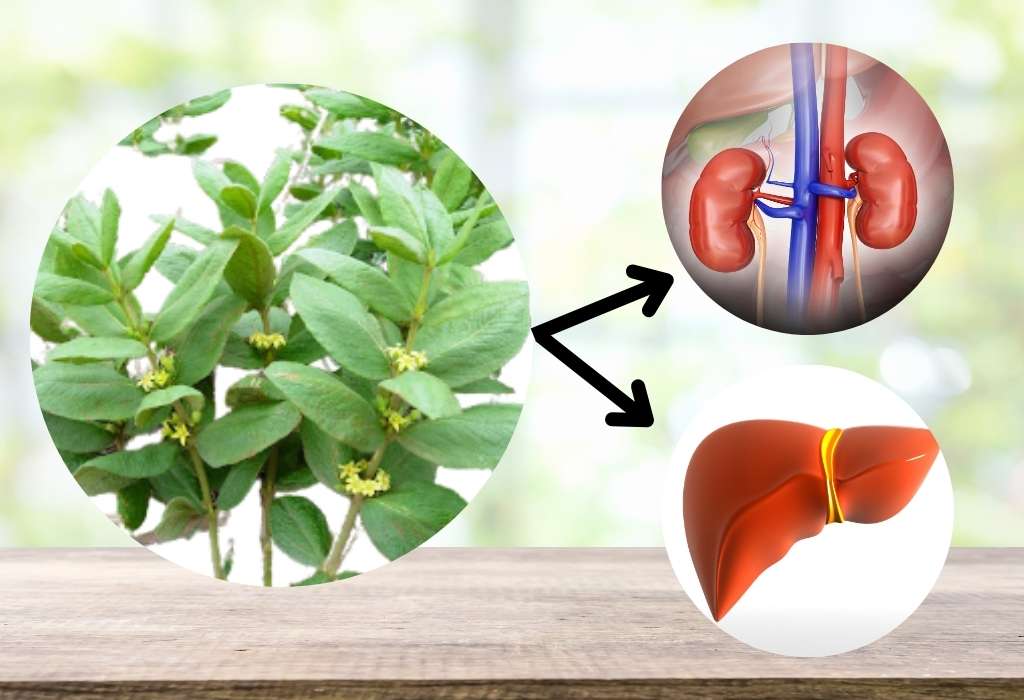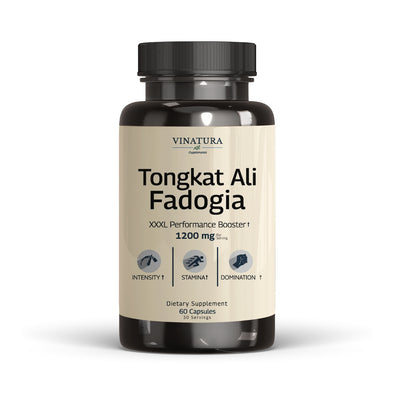
Is Fadogia Agrestis Toxic? Side Effects On Liver And Kidney
Is Fadogia Agrestis Toxic? Fadogia Agrestis may cause undesirable side effects on the liver and kidneys if used in high doses over a long period. Therefore, it's important to be aware of these potential side effects and take necessary precautions to use Fadogia Agrestis safely.
Before exploring further, please read the disclaimer located at the end of this webpage.
Key Takeaways
- Fadogia Agrestis is well-known for its various health benefits, but using it for an extended period in high doses can negatively impact health.
- Fadogia Agrestis can have toxic effects when used improperly.
- Side effects of Fadogia Agrestis on the liver include reduced liver enzyme activity and increased levels of MDA (malondialdehyde).
- Side effects of Fadogia Agrestis on the kidneys include elevated uric acid, creatinine, sodium ions, potassium, and calcium, as well as decreased levels of urea and bicarbonate.
- Note: Use Fadogia Agrestis under the guidance and supervision of a healthcare professional to avoid health risks and side effects.
Is Fadogia Agrestis Toxic?

Fadogia Agrestis, an herb from the Rubiaceae family, is highly renowned in traditional medicine. This plant originates from Africa, and its main compounds are known for their ability to treat various ailments, particularly the benefits of Fadogia Agrestis include enhancing performance and sexual pleasure for men.
So, does Fadogia Agrestis contain toxicity? Numerous animal studies have indicated that this herb has significant toxicity and can cause serious damage to vital organs such as the liver and kidneys when used in high doses or for extended periods [1] [2] [3].
Common Side Effects And Toxicity Of Fadogia Agrestis
Using Fadogia Agrestis for extended periods at high doses without the supervision or advice of healthcare professionals can lead to side effects and symptoms of toxicity, such as:
- Side effects: Vomiting, headaches, loss of voice, skin irritation such as redness and itching, nausea, and effects on sleep quality.
- Toxicity symptoms in vital organs: In the liver, it can cause degeneration and tissue death (also known as necrosis), and in the kidneys, it may lead to chronic nephritis.
Read more: How Long Does Fadogia Agrestis Take to Work?
What Are The Side Effects And Toxicity Of Fadogia On The Liver?
A 2009 study [1] lasting 28 days on mice showed that Fadogia Agrestis can be toxic to the liver. Specifically:
Study Design: The subjects were female mice divided into 4 groups. Three of these groups were administered Fadogia Agrestis extract at 18, 50, and 100 mg/kg of body weight, respectively.
Results:
- Reduced liver enzyme activity: Serum levels of liver enzymes (ALP, GGT, LDH) increased, but their activity in the liver decreased. This indicates that after using Fadogia Agrestis, there were signs of liver damage or dysfunction.
- Increased MDA levels: MDA, a marker of oxidative stress, significantly increased in this study, suggesting that Fadogia Agrestis extract may cause damage to cell membranes.
Although clinical toxicity symptoms or death were not observed, the study demonstrated that Fadogia Agrestis can have adverse effects on the liver, particularly with long-term use or high doses, which could compromise liver structural integrity.
What Are The Side Effects And Toxicity Of Fadogia On The Kidney?

A 2008 study [2] lasting 21 days on male mice showed that Fadogia Agrestis affects kidney function with long-term use. Specifically:
Study Design: The subjects were 20 male white mice divided into 4 groups. Three of these groups were administered Fadogia Agrestis extract for 21 consecutive days at 18, 50, and 100 mg/kg doses.
Results:
- Increased uric acid and creatinine levels are key indicators of kidney filtration function, and their increase suggests that kidney dysfunction is developing. The study showed that Fadogia Agrestis causes kidney impairment, as the serum levels of these substances increased significantly.
- Increased levels of sodium, potassium, and calcium ions: These substances also significantly increased in the serum after Fadogia Agresti's use, indicating electrolyte imbalance and impaired kidney function.
- Decreased levels of urea and bicarbonate: This reflects a reduction in the kidneys' detoxification capability following Fadogia Agresti's use.
Therefore, Fadogia Agrestis can cause kidney dysfunction, decreased detoxification ability, and overall decline in kidney function.
What Are The Factors Influencing The Severity Of Fadogia Agrestis Side Effects?
The level of impact of Fadogia Agrestis may depend on the following three factors:
- Dosage: Using Fadogia Agrestis at high doses can lead to toxicity and severe side effects.
- Duration: Prolonged use without medical advice can cause serious effects on the liver and kidneys.
- Health Status: If you use Fadogia Agrestis while having pre-existing liver or kidney health issues, it may worsen the condition.
How To Prevent Fadogia Agrestis Side Effects And Toxicity
To prevent side effects and toxicity from Fadogia Agrestis, it is best to follow these three principles:
- Principle 1: Always consult a doctor, especially if you have liver or kidney conditions, and ensure you have a careful usage plan.
- Principle 2: Use according to the dosage advised by your doctor; do not increase the dosage on your own.
- Principle 3: Continuously monitor your condition and bodily reactions throughout the usage period to detect any unusual symptoms promptly. Blood tests can be performed to monitor the body's reaction to Fadogia Agrestis.
You may be interested: When to Take Fadogia Agrestis: Morning or Night?
Conclusion
Fadogia Agrestis is an herb that offers numerous health benefits, particularly in enhancing sexual function. However, this herb can also cause symptoms such as liver necrosis and chronic nephritis. Therefore, users should consult a doctor before using it to prevent health risks.
References
- [1] Mode of cellular toxicity of aqueous extract of Fadogia agrestis (Schweinf. Ex Hiern) stem in male rat liver and kidney MT Yakubu, AT Oladiji, and MA Akanji September 15, 2009 https://doi.org/10.1177/0960327109106973
- [2] Effect of chronic administration of aqueous extract of Fadogia agrestis stem on male rat kidney function indices Phytopharmacology and therapeutic values I, 2008, 359-367 ref. 20 https://www.cabidigitallibrary.org/doi/full/10.5555/20083022670
- [3] Effect of oral administration of Fadogia cienkowskii Shweinf (Rubiaceae) ethanol root extract on some semen parameters - testes - epididymis - liver and kidney of male albino rats Volume 20 , July 2023, e01637 https://doi.org/10.1016/j.sciaf.2023.e01637
Author

Product Disclaimer
Including an ingredient or study does not evaluate, endorse, or recommend any Vinatura product or any third-party product. Some ingredients discussed may not be used in any Vinatura product.
The content of the articles has not been evaluated by the Food and Drug Administration (FDA) and is not intended to promote or endorse any specific product. Any products sold on this website are not intended to diagnose, treat, cure, or prevent any disease.
Opinions and Endorsements
Any claims, statements, or opinions expressed in the articles are those of the author(s) and do not necessarily reflect the views or opinions of the manufacturers of the dietary supplement products. The products sold on this website are separate from the content of the articles and are not directly endorsed or associated with the information presented here.
Liability Disclaimer
The author(s) of the articles, website, and manufacturers of the dietary supplement products do not assume any liability for any potential consequences arising from the use of the information provided in the articles. Ingredient effects, dosages, and safety vary by individual, formulation, and context; some ingredients interact with medications or may be unsuitable during pregnancy or lactation. It is recommended that individuals consult with a qualified healthcare professional before making any dietary or lifestyle changes, including the use of dietary supplements.
Product Usage
Please refer to the product labels and packaging for specific usage instructions and guidelines for the dietary supplement products sold on this website.
Customer Support
For any concerns or questions regarding the dietary supplement products, please contact our customer support team, who will be more than happy to assist you.






Leave a Comment
Be the first to comment.
What do you think?